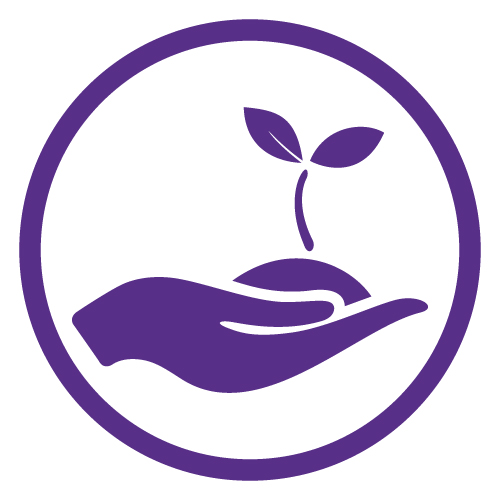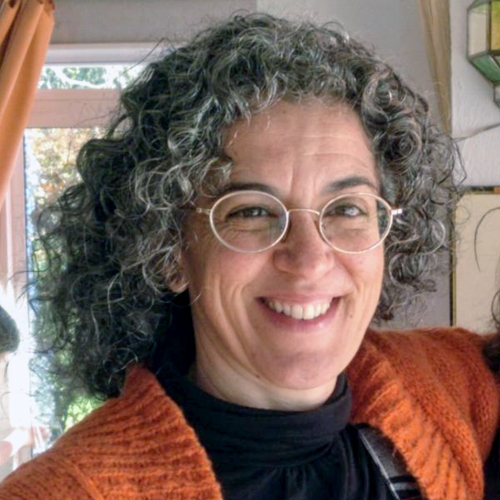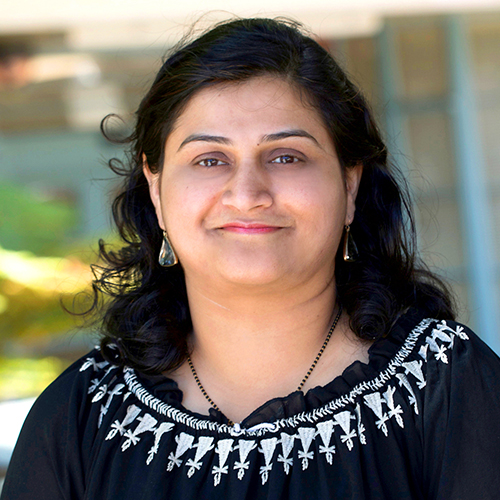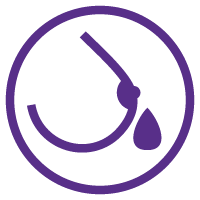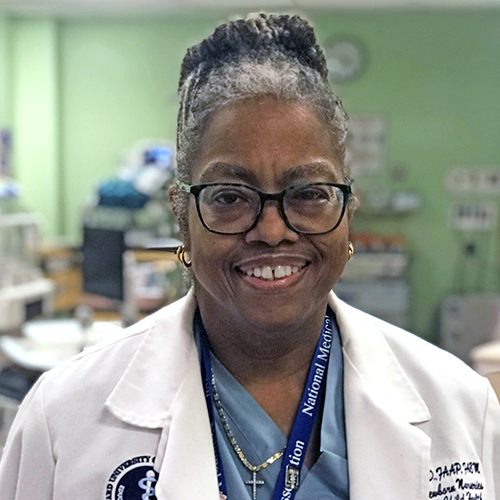 IBCLC Detailed Content Outline: Development and Nutrition / Maternal Focused CERPs - Section I B
IBCLC Detailed Content Outline: Development and Nutrition / Maternal Focused CERPs - Section I B
Access CERPs on Development and Nutrition / Maternal for the IBCLC Detailed Content Outline recertification requirements. On-demand viewing of the latest Development and Nutrition / Maternal focused IBCLC CERPs at your own pace.
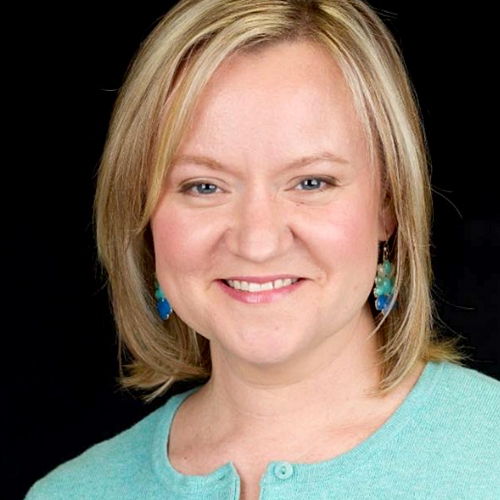
Foundations of TOTS Assessment: Anatomy, Appearance, and Function

Lisa Lahey RN, IBCLC, OMT has worked for 23 years in maternal child health as a nurse and lactation consultant in L/D, postpartum, newborn nursery, NICU, and perinatal education. Lisa is currently working on her master's degree for Family Nurse Practitioner. An IBCLC for 20 years, Lisa has a special interest and expertise in tethered oral tissues. Lisa’s private practice Advanced Breastfeeding Care provides home visits or office consults for complex feeding issues as well as joyful breastfeeding. Lisa also provides myofunctional therapy to babies, children, and adults in a functional orthodontic office. Lisa is a contributing author to the book Tongue Tied. Lisa enjoys teaching assessment fundamentals and oral exercises when she lectures at conferences and courses. Clinical photography and nature photos are also a favorite hobby. Most of all, she is a mom to five children (all were breastfed) who keep her busy and remind her daily of life’s joys and treasures traveling and hiking with her family to unplug from a busy pace in life.
The IBCLC must develop and expand knowledge of the 3 foundations key to TOTs assessment which are anatomy, appearance, and function. This talk will review anatomy and physiology concepts, explore appearance of frenulums, and discuss current functional screening tools that can be utilized for assessment.
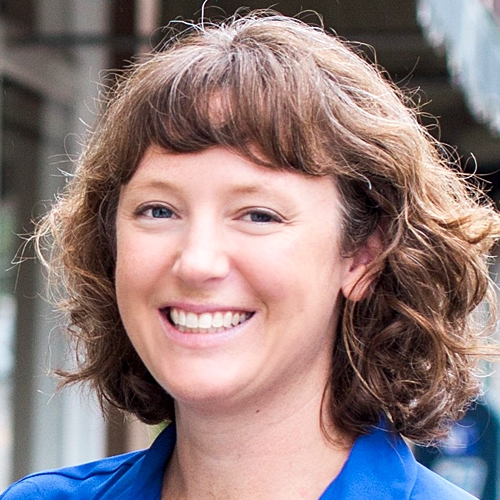
Funny Tasting Milk: The Biochemistry and Clinical Applications of Human Milk Oxidation vs. High Lipase Action

After studying biology at Meredith College in North Carolina, Nicola Singletary, PhD, MAT, IBCLC spent the early part of her career sharing her love of science with middle school students. It was not until after the birth of her first child in 2007 and the challenges she faced breastfeeding that she became interested in pursuing a career in breastfeeding support. She enrolled at North Carolina State University to study human nutrition and completed the Mary Rose Tully Training Initiative through the Carolina Global Breastfeeding Institute at UNC Chapel Hill in 2012. In the fall of 2013, she opened Harmony Lactation, LLC with the goal of helping mothers meet their breastfeeding goals. She recently completed her PhD in Nutrition and is a postdoctoral researcher at NCSU; her research focuses on breastfeeding education. She is also co-owner of Next Level Lactation, an educational and consulting company for lactation professionals.
Topic: Funny Tasting Milk: The Biochemistry and Clinical Applications of Human Milk Oxidation vs. High Lipase Action - [View Abstract]
Some breastfeeding parents find that their stored milk tastes sour or rancid, and sometimes this milk is refused by their baby. These flavors and odors are often described as metallic, fishy, rancid, sweaty or soapy. But what exactly causes these ‘off’ flavors and what can be done about milk that is refused? Is the solution always to scald milk? Milk with high lipase action leads to milk with increased levels of free fatty acids during storage that can produce rancid and sweaty flavors. Enzymes such as lipase can be inactivated by heating prior to milk storage. Milk with high levels of polyunsaturated fatty acids is susceptible to fat oxidation during storage leading to fishy and metallic flavors. Storage recommendations to reduce oxidation of fatty acids in milk include using short storage times, thawing at cold temperatures, and avoiding light exposure during storage. Case studies of both oxidized milk and high lipase action will be presented along with possible solutions.
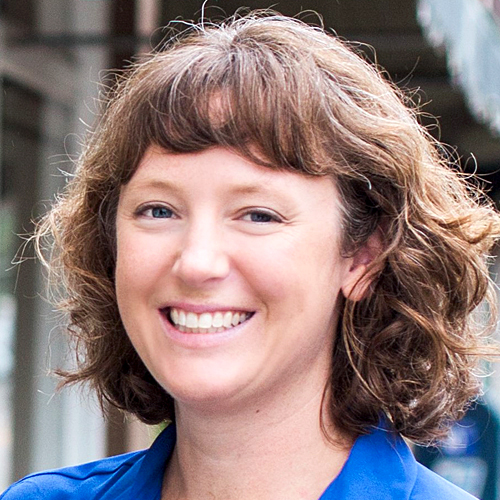
View Details / Enroll
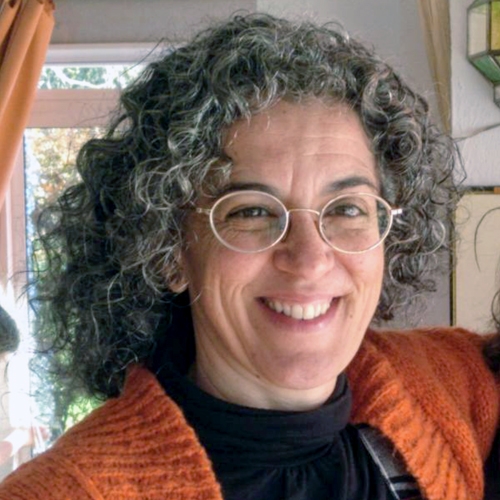

Carmela is a family medicine MD, bachelor´s degree in Public Health Education, and IBCLC since 2005. She is also a BFHI Evaluator and the co founder and past president of the Spanish Lactation Consultant Association (AECCLM). She works in a private Family Wellness Clinic, Raices, as person in charge of the lactation program, which includes two IBCLCs attending breastfeeding families and an extensive offer of breastfeeding training for health care professionals and breastfeeding peer counsellors. The team has trained over three thousand doctors, midwives and nurses from both the Spanish National Health Service and the private sector in Spain. She is a frequent lecturer at national conferences, and has also lectured internationally, both on-site and online. She is the author of several scientific papers on breast pain, mastitis and tongue tie. She is also the author of a breastfeeding/parenting book, “Amar con los Brazos Abiertos” (To Love with Open Arms). She is married to Carlos and they homeschool their four children.
Topic: Assessment and Management of Mastitis - [View Abstract]
Topic: Getting Milk Production off to a Good Start - [View Abstract]
Topic: Management of Chronic Breast Pain: Holistic Approach - [View Abstract]
Topic: The Art and the Science: A Critical Look at the Physiology and Management of Mastitis - [View Abstract]
The most frequent cause of weaning worldwide is mother´s feeling that she does not have enough milk or that her infant is hungry despite her efforts… and frequently this perception becomes a reality. What support systems and clinical strategies can we use to protect mother´s normal capacity for milk production?
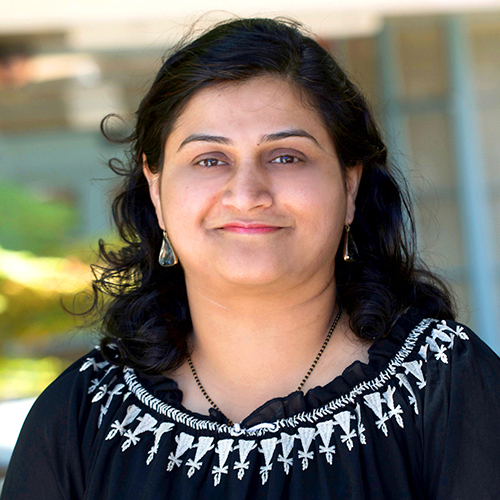

Consultant neonatal pediatrician with special interest in neonatal nutrition, probiotics, gut-brain-microbiota axis and long-term neurodevelopment. Dr Jape leads the high-risk neonatal follow-up program for her tertiary referral institute. Currently the chair for the Perinatal Society of Australia and New Zealand long-term outcomes sub-committee. Dr Jape is Clinical Associate Professor at the School of Medicine, University of Western Australia. Dr Jape is reviewer for national and international medical journals.
Topic: Critical Congenital Heart Disease: A Guide to Screening & Management - [View Abstract]
Topic: Gut-Microbiota-Brain Axis in Neonates and Infants - [View Abstract]
Recent advances in next generation sequencing have improved our understanding of the important role of gut microbiota in influencing brain development and function; i.e: 'gut-microbiota-brain' (GMB) axis. This is a bi-directional pathway where brain and gut microbes share detailed communications through immunological pathways, hormones and metabolites. GMB plays a crucial role in early brain development and function and impacts on long-term neurodevelopment and neurobehaviour. Understanding these roles is important to understand effective management and potentially prevention. This presentation will cover important aspects of GMB development, physiology, function and translation in clinical medicine for neonates and infants.
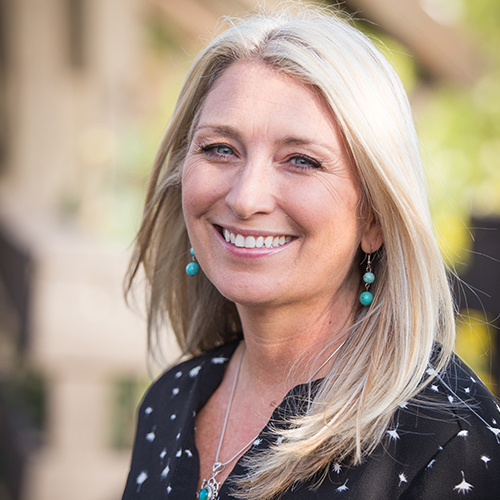
Hold the Phone! Diet Does Matter During Breastfeeding: Implication of Diet on Fatty Acid Composition and Other Nutrients

Laurel Wilson, BS, IBCLC, CCCE, CLE, CLD, CPPFE, CPPI owns MotherJourney in Morrison, Colorado. She has her degree in Maternal and Child Health – Lactation Consulting. With twenty-five years of experience working with Parents in the childbearing year and perinatal professionals, Laurel takes a creative approach to working with the pregnant family. She is a co-author of best-selling books, The Greatest Pregnancy Ever: The Keys to the MotherBaby Bond and The Attachment Pregnancy: The Ultimate Guide to Bonding with Your Baby. She currently spends a great deal of her time working with hospitals seeking BabyFriendly Status as a consultant and educator. She strives to provide the latest techniques, research and programs to her clients. Laurel is a board certified as a lactation consultant, childbirth educator, labor doula, lactation educator, Prenatal ParentingTM Instructor, and Pre and Postpartum fitness educator. She served as the CAPPA Executive Director of Lactation Programs for 16 years and trained Childbirth Educators and Lactation Educators for CAPPA certification. She is on the Board of Directors for the United States Breastfeeding Committee, a Senior Advisor for CAPPA, and also on the Advisory Board for InJoy Health. Laurel has been joyfully married to her husband for more than 25 years and has two amazing sons, whose difficult births led her on a path towards helping emerging families create positive experiences. She believes that the journey towards and into parenthood is a life changing rite of passage that should be deeply honored and celebrated.
Topic: Epigenetics and Breastfeeding: The Potential Longterm Impact of Breastmilk - [View Abstract]
Topic: Hold the Phone! Diet Does Matter During Breastfeeding: Implication of Diet on Fatty Acid Composition and Other Nutrients - [View Abstract]
Topic: Inside Out: Unraveling the Dance of NeoHormones, the Estrobolome, and the Microbiome - [View Abstract]
Topic: Postpartum Mood Disorders, Breastfeeding and the Epigenetic Links from Past Into Future - [View Abstract]
Topic: Talk To Me: How Breastmilk Acts as a Communication and Gene Expression Tool Between Mother and Child - [View Abstract]
Topic: The Milk Sharing Conundrum - The Grey Area Between Scope and Need - [View Abstract]
Topic: The Placenta and Breastmilk-Unraveling the Mysterious World of the Intelligent Organs that Protect our Babies - [View Abstract]
Topic: Understanding Zika and Lyme and Breastfeeding - [View Abstract]
Topic: Unraveling the Mysteries of Human Milk: The Fascinating Role of Neohormones, Epigenetics, the Microbiome and More! - [View Abstract]
For more than a decade most lactation professions have been suggesting to families that diet matters very little in terms of breastmilk composition. We have told parents that they can essentially eat whatever they want, it does not matter to the bottom line. However, new studies imply that in fact, diet does matter in terms of the composition of fatty acids and essential nutrients available in milk that can potentially impact life long health. Studies also show that changes in diet can lead to gene methylation which impacts gene expression, as well changing the oligosaccharide profile which shapes the microbiome. This presentation takes you on a tour of some recent research finds to better understand how maternal diet (potentially prenatally through lactation) DOES play a role in breastmilk and how a parent’s diet can potentially influence a breastfeeding baby’s health.

View Details / Enroll
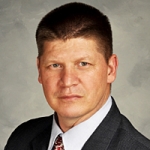
Human Milk Synthesis: Just When You Thought You Knew

Tom Johnston is unique as a midwife and lactation consultant and the father of eight breastfed children. Recently retired after 27 years in the US Army, he is now an Assistant Professor of Nursing at Methodist University where he teaches, among other things, Maternal-Child Nursing and Nutrition. You may have heard him at a number of conferences at the national level, to include the Association of Woman’s Health and Neonatal Nurses (AWHONN), the International Lactation Consultant’s Association (ILCA), or perhaps at dozens of other conferences across the country. In his written work he routinely addresses fatherhood and the role of the father in the breastfeeding relationship and has authored a chapter on the role of the father in breastfeeding for “Breastfeeding in Combat Boots: A survival guide to breastfeeding in the military”.
Topic: Human Milk Synthesis: Just When You Thought You Knew - [View Abstract]
Topic: New Insights Into the Maternal Child Microbiome - [View Abstract]
Topic: Promoting Provider Self-Efficacy in Breastfeeding Support - [View Abstract]
Topic: Still Swimming Upstream: Breastfeeding in a Formula Feeding World - [View Abstract]
Topic: The Making of Human Milk: A Clinical Update - [View Abstract]
Topic: The Maternal-Child Microbiome or: The “Oro-boobular axis” - [View Abstract]
Topic: The Maternal-Child Microbiome or: The “Oro-boobular axis” - [View Abstract]
Topic: The Perinatal Microbiome - [View Abstract]
Topic: Using Evidence to Develop Clinical Lactation Skills - [View Abstract]
"I didn't make enough milk!" We hear it on a regular basis from heartbroken new mothers. In fact, this is the number one factor contributing to breastfeeding failure after two weeks of age is a perception of inadequate milk production. This phenomenon of sudden onset lactation failure is widely accepted as a common occurrence among breastfeeding mothers. This topic has been the subject of a number of quality studies that have yielded a conflicting mix of responses from primary health care providers and lactation consultants alike. This discussion will attempt to shed light on the very different concepts of "Milk Production" vs. "Milk Synthesis" and will demonstrate how confusion between those two concepts have clouded the study of milk production, promote the fallacy of "insufficient milk production syndrome", and contribute to the failure of breastfeeding. This presentation will also attempt to provide a preliminary course of action to begin anew in milk production research and perhaps even provide a framework for helping the new mothers facing the milk supply challenge.


I was born in Detroit Michigan and graduate from M.L. King High School in 2001. I completed a B.S. in Chemistry at Oakland University in Michigan and Ph.D. in Chemistry at Vanderbilt University. After completing postdoctoral research at Memorial Sloan Kettering Cancer Center, I began an independent career at Vanderbilt In 2014.
When antibiotics were first broadly introduced in the 1930s, they were considered the most important advancement in modern medicine. Deaths attributed to communicable diseases were drastically reduced leading to the belief that infectious diseases were conquerable. Bacteria, however, counter antibiotic chemotherapy with resistance mechanisms that result in the emergence of infections untreatable by the current artillery of therapeutics. Efforts to develop new antimicrobial agents with unique structural motifs and novel modes of action to fight multi-drug resistant pathogens are ongoing. During this seminar, I will discuss our groups ongoing efforts to develop human milk oligosaccharides as novel antimicrobial agents.

View Details / Enroll
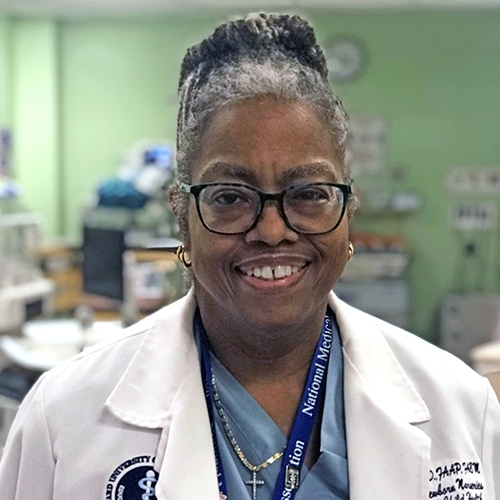

Michal A. Young, M.D., FAAP, FABM is currently an Associate Professor in the Department of Pediatrics and Child Health at Howard University College of Medicine. She also serves as the Medical Director of the B.L.E.S.S. (Breastfeeding Lactation Education Support Services) Initiative as well as Director of the NICU and Newborn Services, at Howard University Hospital. She is a graduate of Howard University College of Medicine, Class of 1979. Dr. Young completed a rotating internship in Medicine and Pediatrics at Grady Memorial and Emory Hospitals in Atlanta, Georgia, followed by a Pediatric residency in the Howard University Hospital/D.C. General Hospital Combined Program, and a fellowship in Neonatal-Perinatal Medicine at Georgetown University Hospital.
Dr. Young has several publications and presentations over a range of topics governing infant care. Her research interests are in developmental outcomes of the ELBW, HIV perinatal transmission, the Diabetic Dyad and in breastfeeding education for professionals and parents.
She is a member of Alpha Omega Alpha, a fellow of the American Academy of Pediatrics (sections on Perinatal Medicine and Breastfeeding), a Fellow and member of the Board of Directors of the Academy of Breastfeeding Medicine (Chairman of its Protocol Committee), member of the National Medical Association (a Past Chair of its Pediatric Section), Member of the Board of Directors for the D.C. Breastfeeding Coalition, Member of the Board of Directors for ROSE: Reaching Our Sisters Everywhere, Inc., one of the Chapter Breastfeeding Coordinators for the D.C. Chapter of the American Academy of Pediatrics and Board Member of the Prolacta Bioscience Foundation.
Human milk provides multiple layers of immune protection to the newborn by providing bioactive components that protect the infant from pathogenic infection, facilitate immune development and establish a healthy gut microbiome. This presentation will review the cellular and humoral components of human milk that help provide this protection. Additionally, the nutritional components of human milk that also contribute to its immune impact will be briefly explored. The long-term protective effect of breast milk on adult illnesses and disease and its presumed role will be discussed. Lastly the impact milk storage, milk banking practices and use of donor milk as mechanisms to provide immune support to the newborn will be considered. An interactive power point presentation will be used to deliver this important topic.
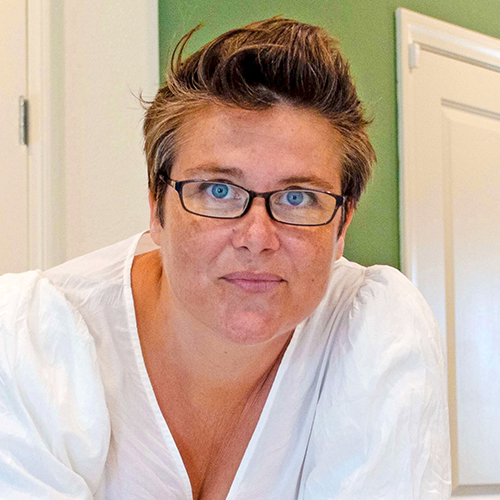
Ironing Out the Details: The Hidden Crisis of Iron Deficiency During Pregnancy

Augustine is an internationally recognized midwifery educator, experienced business executive, and veteran midwife with a heart focused on the underserved, marginalized, and under-resourced. She respects the importance of being empowered and undisturbed during labor, and balances this attention to the sacred with 20+ years experience attending births in hospitals, birth centers, and homes in rural, urban and suburban environments in the US and abroad. Augustine’s focus is finely attuned to the process of letting go and opening to the unknown in labor and in life. Additionally, Augustine has a master’s degree from Bastyr University in Seattle, WA where she majored in Maternal/Child Health Systems.
Her life's mission is to mainstream midwifery and deconstruct the culture of fear and misinformation that surrounds the maternity world globally. To that end, Augustine 'midwife's the midwife' through her many education programs, consulting services, product development, podcasts and video production, business site visits, and with private coaching services for midwives, students, maternity practice owners, & birth center administrators through her consulting firm, The Midwifery Wisdom Collective. It is her profound honor to illuminate the sacred path to joyful and sustainable midwifery practice. She lives and works in India.
Topic: Ironing Out the Details: The Hidden Crisis of Iron Deficiency During Pregnancy - [View Abstract]
We exist on this planet because of the vital metals like sodium, potassium, magnesium, and calcium that easily dissolve in our body's water. Equally important are iron, zinc, and copper, found in nearly half of our proteins.
Iron plays a crucial role in our blood, with four iron atoms in hemoglobin storing and transporting oxygen. Inadequate iron in early childhood leads to reduced attention span, difficulty grasping concepts, irritability, social withdrawal, and delays in language and motor skills. Iron deficiency during pregnancy increases the risk of premature birth, low birth weight, birth asphyxia, maternal infections, pre-eclampsia, and hemorrhage.
Approximately two billion people or 25% of the global population lack sufficient dietary iron and iron stores. Anemia (the last stage of iron deficiency) caused 50 million years of healthy life lost due to disability in 2019 alone. This presentation aims to educate healthcare providers and birth workers on the magnitude of this epidemic and provide guidance on the essential laboratory assessments, symptoms and the new evidenced-based values for evaluating iron status in patients. It will also cover important aspects of proper treatment approaches.
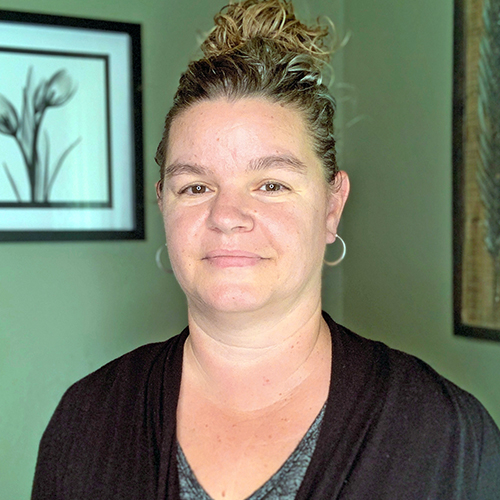
Lactation Skills for Supporting Dyads with Oral Restrictions

Christine Staricka is a Registered, International Board-Certified Lactation Consultant and trained childbirth educator. As the host of The Lactation Training Lab Podcast, her current role focuses on training and coaching current and aspiring lactation care providers. Christine created and developed The First 100 Hours© concept, an early lactation framework designed to support lactation care providers with the knowledge and mindset they need to help families optimize early lactation. Christine worked as a hospital-based IBCLC for 10 years and has over 20 years experience providing clinical lactation care and support. She provides clinical lactation care to families at Baby Café Bakersfield and serves as its Director. Christine recently completed 6 years of service on the Board of the United States Lactation Consultant Association (USLCA.) She holds a Bachelor's Degree from the University of Phoenix. She has been married for 27 years, lives in California, and is the proud mother of 3 amazing daughters.
Topic: Tongue-Tied and Troubled: A Breastfeeding Journey at Risk - [View Abstract]
Topic: Your Responsibility to the WHO Code: Evaluating Real-World Scenarios for Compliance - [View Abstract]
A growing body of work supports the lactation care provider in assessing, referring, and infant feeding after a revision of oral restrictions; far less has been said regarding ongoing lactation care when revision is not part of the plan in the short- or long-term. Whether because revision services are unavailable, inaccessible, or not desired by parents, the dyad that includes a baby with non-revised oral restrictions will require a customized plan to avoid problems of lactation related to infants with oral restrictions. This presentation will equip the lactation care provider with tools to support the identified population of dyads where the infant has or is suspected to have oral restrictions. (These tools shall include: a review of situations which might lead a dyad to be considered part of this specific population; a comprehensive understanding of the categories of potential problems of lactation associated with this population; and the creation of a lactation care plan with clinical skills specifically designed to consider and address the needs of a dyad in this population along the entire spectrum of normal lactation.) Lactation care providers in any setting and with any level of training will benefit from this review of the issue as it offers a deeper understanding of why particular tools, techniques, and routines might be required for this population as compared with other populations of dyads.




